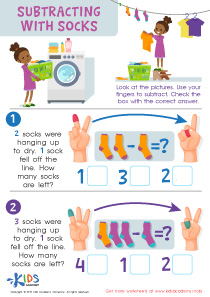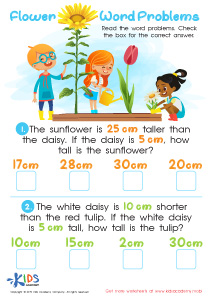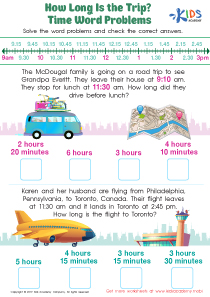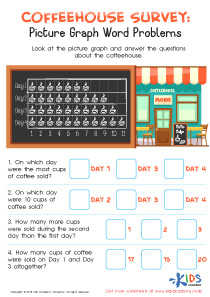Easy Two-step Word Problems Worksheets for Ages 4-9
5 filtered results
-
From - To
Discover our engaging "Easy Two-Step Word Problems Worksheets" designed specifically for children ages 4-9! These worksheets provide a fun and interactive way for young learners to develop critical thinking and problem-solving skills. Each worksheet features age-appropriate scenarios to challenge students while reinforcing essential math concepts. With clear instructions and vibrant visuals, children will enjoy tackling each problem confidently. Perfect for classroom use or homeschooling, our resources align with educational standards to ensure effective learning outcomes. Give your child the tools they need to succeed in math by exploring our collection of easy-to-use worksheets today!
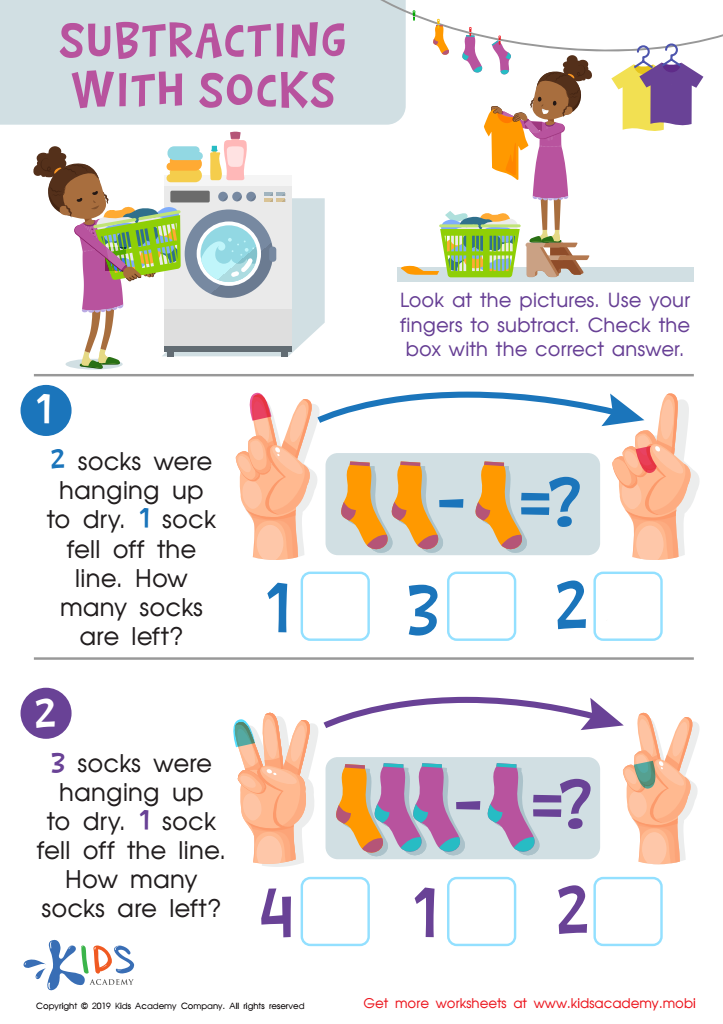

Subtracting Socks Worksheet


Counting Seedlings Worksheet
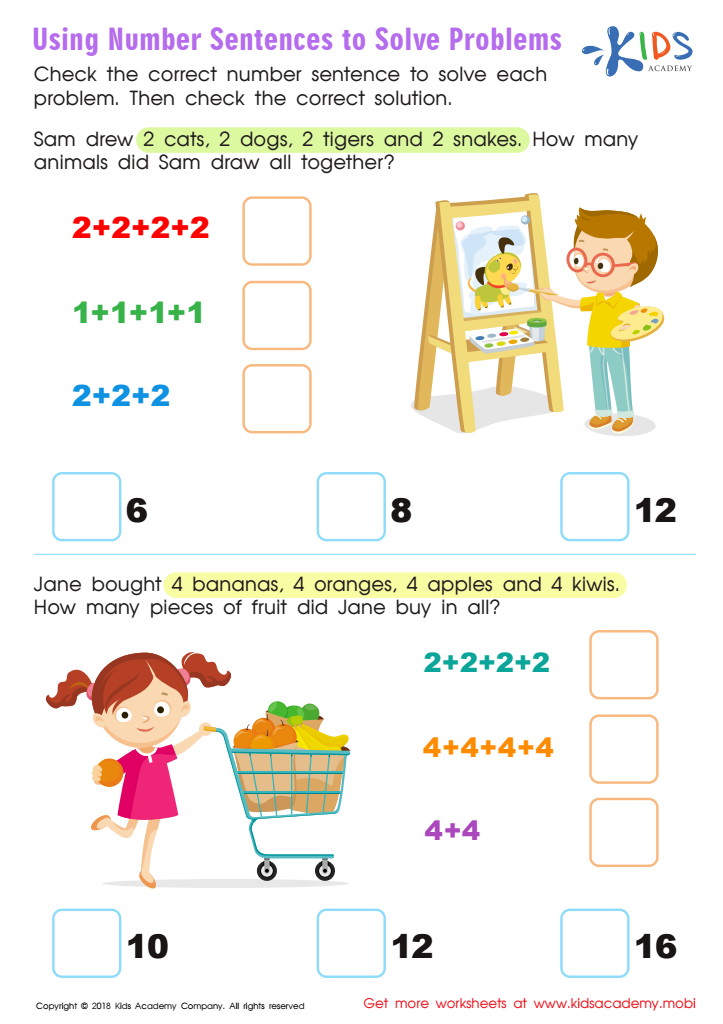

Using Number Sentences to Solve Problems Worksheet
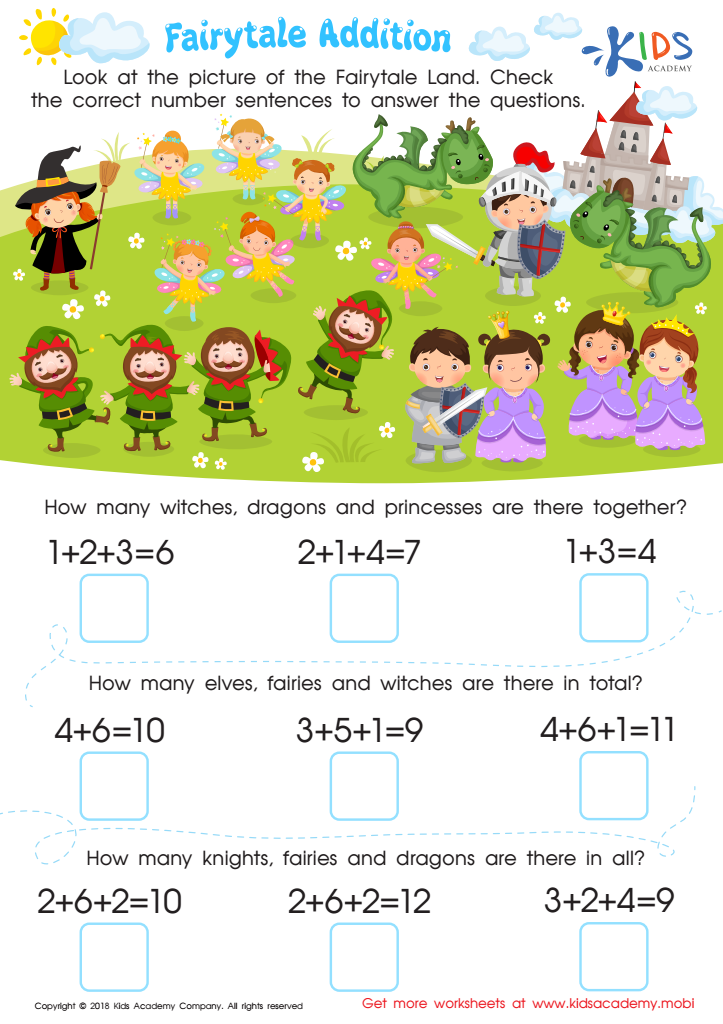

Fairytale Addition Worksheet
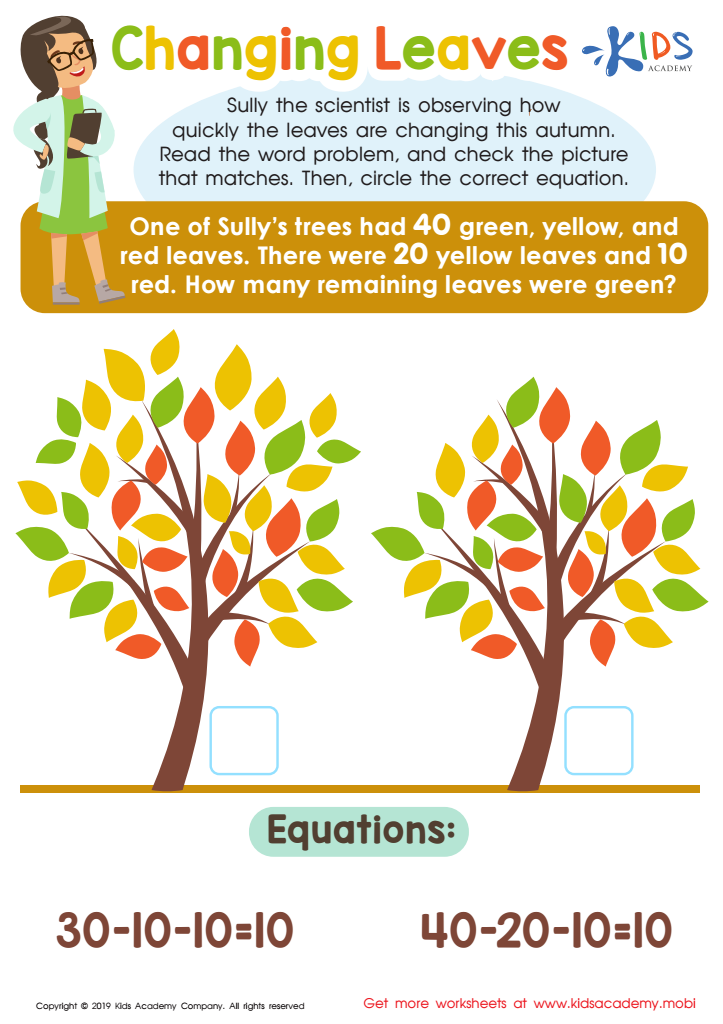

Changing Leaves Worksheet
Easy two-step word problems are crucial for children aged 4-9 as they lay the foundation for critical thinking and mathematical understanding. At this formative stage, children are learning how to process information and develop problem-solving skills. These problems help them move beyond basic arithmetic, challenging students to analyze situations and engage in multi-step reasoning. They teach children to break down a problem into manageable parts, a skill that is applicable not only in math but also in everyday decision-making.
Moreover, solving these problems promotes language development as children learn to interpret and verbalize what the question is asking. It fosters communication skills as they explain their thought processes. Engaging with word problems also builds resilience; children learn that struggling with a complex task can lead to improvement and mastery.
Parents and teachers should care about these activities because they enhance cognitive flexibility, encouraging kids to think creatively about solutions. This aspect of learning fosters a positive attitude towards math and builds confidence in their abilities. By investing time in easy two-step word problems, adults ensure children develop a solid foundation that supports future mathematical concepts and nurtures lifelong problem-solving skills.
 Assign to My Students
Assign to My Students







